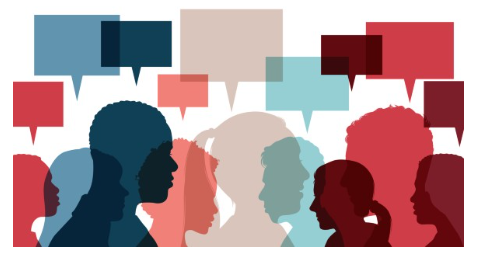Author: Dr. Amy Waterman, PhD FAST
Progress in Transplantation. 2024;34(1-2):6-6. doi:10.1177/15269248241241164
Our community of transplant patients and living donors continually teach me important lessons, both personally and professionally. The most important lesson I learned was to remember that I have never lived life as a person in need of transplant, a transplanted patient, or a living donor. Because of this, I cannot intimately know the fears and challenges of transplant, nor always how best to help.
Early in graduate school, while still training to become a transplant psychologist, I surveyed hundreds of living donors to ask them if they regretted their decision to donate their kidneys. During these telephone calls, I met many loving and inspiring people, the majority of whom reported that they would donate their kidneys again and grew personally while doing so. One living donor I interviewed told me that, “after donating, she became a poet because she got what life was about.” I have never forgotten her words, even 20 years later, now working as the Director of Patient Engagement.at J.C. Walter Jr. Transplant Center at Houston Methodist Hospital.
This same research study revealed that many potential living donors reported that they were too shy to ask questions about donation for fear that they would be ruled out and not be able to help improve the health of the kidney patient they knew. They shared questions with me that they had never asked any healthcare provider, important questions like how large the incision was going to be and how long it would take until they were back to normal. Many recommended that more comprehensive education about the risks and benefits of donation be made available earlier. Their insights and unanswered questions launched my professional career designing health-literate educational programs to ensure that all potential transplant recipients and living donors made informed decisions.
Standing in my commitment to continually improve the transplant and donation experience, I have spent an entire career listening to patients. It turns out that if you ask them most people know who they are and what they need. I have learned that the journey to decide to get a transplant can take years. In contrast, the decision to become a living donor can be instantaneous. I have learned that kidney patients are very concerned about asking others to donate a kidney, so much so that they will rule out living donation entirely. I have also learned that patients want to talk to others who have faced similar challenges, and that donor and recipient peer mentors can provide support in ways that I cannot.
I have also learned that the wisdom and voices of patients need to be amplified, particularly those who are members of underserved communities who are not receiving equal access to transplant. For this reason, I am excited that Progress in Transplantation is releasing a Call for Papers for a Special Issue entitled, Amplifying the Patient Voice in Research and Healthcare.
Join me in submitting to the journal manuscripts that examine 2 concepts: patient engagement in research and activation in healthcare. This includes clinical outcomes of studies that have included collaboration with patients and researchers in any or all stages of the research process.
The definition of patient engagement isn’t always clearly defined but a systematic review of research using patient engagement terms proposed the following definition for patient engagement:
The active, meaningful, and collaborative interaction between patients and researchers across all stages of the research process, where research decision making is guided by patients’ contributions as partners, recognizing their specific experiences, values and expertise.1, p.682
As a function of health literacy and self-management, patient activation includes having “knowledge, skill, motivation, and confidence to manage one’s health and health care.”2, p.252
Possible topics might include research about the value of peer support and mentoring programs, studies examining approaches to improving engagement and activation particular for underserved populations or those facing social determinants of health, interventions to address gaps in care identified by the patient community, and approaches to optimize support of patients and donors including disciplines beyond medicine, such chaplaincy, psychology, pharmacy, social work, nursing, or information technology.
The Special Issue will also accept short commentaries or editorials directly from patients, donors, and nonprofit and advocacy organizations that can speak to personal experiences or priorities important to patients and donors. I wonder what new insights from patients and donors could improve the transplant and donor experience? It is again time for our transplant field to listen and amplify the voices of patients and donors.
References
1. Harrington RL, Hanna ML, Oehrlein EM, et al. Defining patient engagement in research: Results of a systematic review and analysis: Report of the ISPOR Patient-Centered Special Interest Group. Value Health. 2020;23(6):677–688.
2. Hibbard J, Health policy research group. Patient activation and health literacy: what is the difference? How do each contribute to health outcomes? Stud Health Technol Inform. 2017;240:251–262.
Waterman AD. What is the Value to Listening and Amplifying the Voices of Patient and Donors? Progress in Transplantation. 2024;34(1-2):6-6. doi:10.1177/15269248241241164

